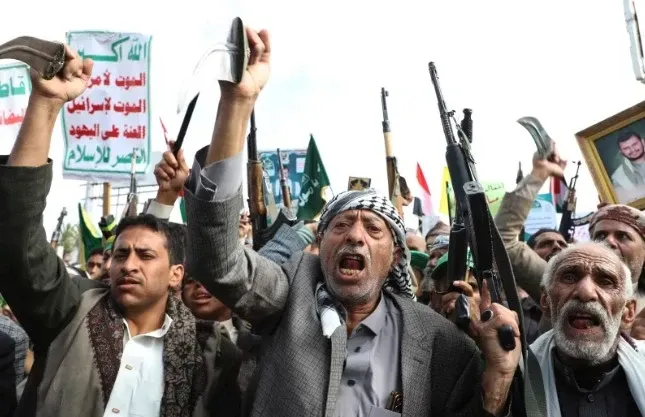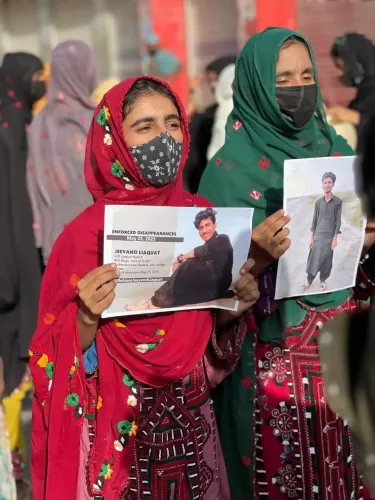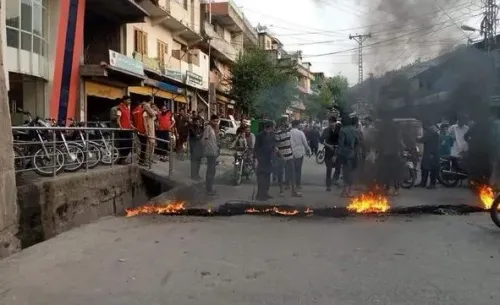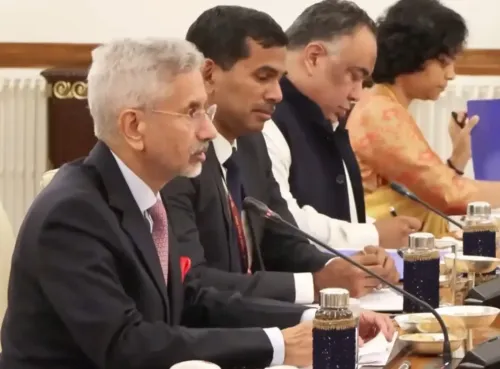Did Israeli Strikes in Sanaa Claim the Lives of Houthi Leaders?

Synopsis
Key Takeaways
- The Israeli airstrikes in Sanaa resulted in the deaths of key Houthi leaders.
- This incident escalates the ongoing conflict in Yemen.
- The Houthis have vowed to retaliate against Israel.
- Humanitarian concerns continue to grow amid the violence.
- International dialogue is crucial to prevent further escalation.
Sanaa, Aug 30 (NationPress) - The Houthi movement in Yemen reported on Saturday that Prime Minister Ahmed al-Rahawi of the Houthi-supported government, along with several other Ministers, lost their lives due to Israeli airstrikes on the capital, Sanaa, earlier this week.
In a statement, they declared, "We announce the martyrdom of Ahmed Ghaleb al-Rahawi, Prime Minister of the Government of Change and Construction, along with a number of his fellow Ministers on Thursday." The attack occurred during a workshop focused on reviewing government activities over the past year, as reported by Xinhua.
Several other Ministers sustained injuries and are currently receiving medical care in hospitals.
The precise number of Ministers killed remains unspecified.
The Houthis asserted that the government would persist in its operations and vowed to retaliate against Israel "very soon." Initially, the group had refuted reports of casualties following Thursday's strikes, despite the confirmation of Rahawi's death.
According to Israel, their Air Force executed a "significant operation" aimed at a Houthi cabinet meeting in Sanaa while attendees were viewing a speech by the Houthi leader, Abdulmalik al-Houthi, concerning the Gaza conflict.
A source within the Houthi movement indicated that Israeli warplanes conducted 10 airstrikes on a building in southern Sanaa where the meeting was taking place.
This strike represents a profound setback for the Houthis since they commenced missile and drone assaults against Israel in November 2023 as a show of support for Palestinians amidst the Gaza conflict.
The Houthis took control of Sanaa in 2014, which led to the internationally recognized Yemeni government fleeing to Aden.
Since then, they have governed a significant portion of northern Yemen, including Sanaa and the vital Red Sea port of Hodeidah, establishing an unrecognized government in the capital.
Earlier this week, Israeli attacks affected multiple regions in Sanaa, resulting in at least 10 fatalities and injuring 102 others, as reported by the Houthi-run Health Ministry and government officials.
The Houthis have been launching missiles and drones toward Israel and targeting vessels in the Red Sea throughout Israel's ongoing conflict with Hamas in Gaza, claiming their actions are in support of the Palestinians.
In retaliation for the Houthi assaults, Israel and a US-led coalition have targeted rebel-controlled areas in Yemen, including Sanaa and the strategically important coastal city of Hodeidah.
Israeli strikes rendered Sanaa airport non-operational in May.
The Trump administration had previously announced a deal with the Houthis to cease airstrikes in exchange for an end to attacks on shipping in May. However, the rebels stated that the agreement did not cover halting strikes on targets they deemed aligned with Israel.









